In Memoriam 2025
Douglas Roy Snaddon (1944-2025)
Professor Douglas Roy Snaddon (BSc Eng 1965, PhD 1988, MBA 1971), who served for many years as head of industrial engineering at Wits and held the prestigious Barloworld Chair of Industrial Engineering, died on 18 August 2025 at the age of 81. 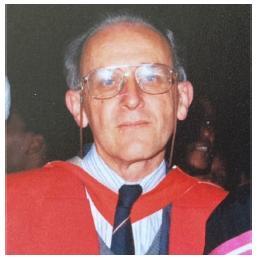
Snaddon taught and inspired many students to love industrial engineering, which he promoted actively in South Africa and outside the country. In 2011, he left Wits to take up the position of professor and director of mechanical engineering at the Polytechnic of Namibia, where he started Industrial Engineering courses and qualifications in Namibia and encouraged the introduction of industrial engineering in Botswana.
He authored numerous papers and articles, as well as two books related to industrial engineering. He was an Honorary Fellow of the Southern African Institute for Industrial Engineering (SAIIE) and served on the SAIIE Council for many years, as well as president in 1994.
During his retirement, he kept regular contact with the Industrial Engineering Department at Wits, giving the occasional lecture, providing valuable advice to the faculty, and regularly speaking at student evenings and prize-giving ceremonies.
He will be remembered for his incredible energy, drive, enthusiasm, wit, humour, forthrightness, and for not compromising on qualities such as excellence, kindness, generosity. He will be dearly missed by all who knew him, particularly his children: Susan (BSc Building 1997), Collin (BMus 1995) and Bruce (BCom 1998) and his grandchildren.
Sources: SAIIE
Margo Mwamba Kalenga (2001-2025)
Margo “Maggie” Kalenga (B Audiology 2023), a pre-med student at Drake University in Des Moines, United States, died suddenly on 29 September 2025 at the age of 24.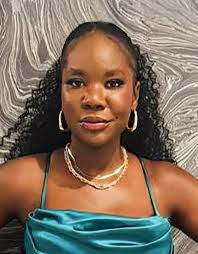
Kalenga was born on 7 May, 2001, in Congo, and graduated with a Bachelor of Audiology from Wits in 2023. She received the 2022 AB Clemons Research Award for her fourth-year research project. Her research supervisor Katijah Khoza-Shangase (BA Speech and Hearing 1997, MA Audiology 2001, PhD 2008) said Kalenga’s “voice and insight shone brightly”.
Kalenga kept in touch with her former supervisor, writing: “Although I am not actively practicing audiology at the moment, I am open to participating in any research projects you are willing to allow me to participate in. I believe it would be a great way to keep my research skills polished and to continue learning.”
Kalenga’s area of research focused on “language, culture, and inclusion in audiology education and practice”. She made the dean’s list throughout her time at Drake.
Outside of academics, she was known for her love for others and her faith. “She forgave quickly, never held a grudge, and spoke God’s Word with grace and authority. Her love for Christ shaped every part of her life,” the obituary from IIes Funeral Homes read.
She is survived by her parents, siblings, extended family, and a host of friends.
Deon Fourie (1932-2025)
Deon François Schönland Fourie (BA Hons 1967) died on 10 September 2025. He was a soldier, academic, military historian, and devoted member of the Order of St John. He combined a lifelong military career with academia, and devoted himself to public service, cultural life, and his family.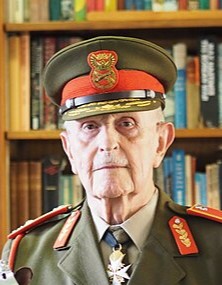
He spent his early years in Sabie and his childhood was shaped by his father’s career as a mining commissioner. Later the family moved to Lichtenburg and to Pietersburg, where he completed his schooling. At Pietersburg High School, he excelled in history, English, and Afrikaans and had a passion for cadets. After matriculating, he worked briefly in the civil service in Pietersburg before pursuing studies in social science at the University of Natal, in Durban, from 1951 to 1953 and later undertook postgraduate studies at Wits.
After passing the Foreign Affairs exams, he joined the South African Diplomatic Service in 1955, but found the work unfulfilling. He also tried his hand as a qualified trademark agent, at Spoor & Fisher, a law firm specialising in trademarks and patents, but again, he found the work uninspiring. Quite by chance, he accepted a position at the University of South Africa in 1968, beginning what became an academic career.
He started as a lecturer in public administration and in 1973 he introduced strategic studies as an academic discipline at honours level – the first such programme in South Africa. He became a professor of strategic studies, a post he held until his retirement in 1997. He supervised generations of postgraduate students, many of whom went on to senior positions in the military, government, and academia. Even after retirement, he continued to supervise research and to lecture periodically, keeping close ties with former students.
Fourie’s military career spanned more than fifty years. Over the years he served in the infantry, marines, navy, and armoured corps. He commanded the Pretoria Armour Regiment from 1975 to 1980, and even after formally leaving the regiment remained involved with the Regimental Association for his entire life. In 1987 he was appointed Director of Citizen Force Liaison on the general staff of the South African Defence Force, a post he held under four successive Chiefs of the Army. In this role he advised on citizen force policy and training, including the introduction of civic education into the armed forces. His military service earned him numerous decorations.
He played an active role in South African civic and cultural life. He chaired the South African National Museum of Military History, and the Pretoria branch of the South African Institute of International Affairs. He also served on the advisory councils of the Institute for Security Studies and the University of Pretoria’s Institute for Strategic Studies. He served on the governing board of Pretoria High School for Girls and had close links with Pretoria Boys High School where we worked with the then principal in introducing cadets and setting up the pipe band.
For more than 40 years, Fourie devoted voluntary service to the Order of St John in South Africa. In recognition of his decades of leadership, he was appointed a Bailiff Grand Cross of the Order of St John in 2021, one of the Order’s highest honours.
In 1964 he met his wife, Felicia, and they were married in 1967 and shared a life for nearly six decades. They raised three children. He was also a proud grandfather of seven grandchildren.
Source: Fourie family, further reading: Wikipedia
Jack Spence, OBE (1931–2025)
Professor John Edward “Jack” Spence, OBE (BA 1952, BA Hons 1953, LLD honoris causa 1997) distinguished scholar of international relations and diplomacy, passed away peacefully on 17 August 2025 in Ludlow at the age of 94.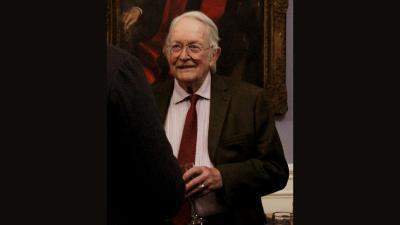
Born on 11 June 1931, Spence was the son of a County Durham miner who emigrated to work in the gold mines of Krugersdorp. He was educated at Pretoria Boys High School and completed his Bachelor of Arts and honours degree in history from Wits. His interests shifted from history to political science, and he qualified with Bachelor of Science in economics from London School of Economics (LSE) in 1955.
His academic career spanned continents and more than six decades, leaving a lasting mark on the study of politics, diplomacy, and African affairs. Spence began his career at the University of Natal, followed by a Rockefeller junior research fellowship at the LSE. He later taught at University College Swansea, before serving as professor of politics and pro-vice-chancellor at the University of Leicester. In 1991 he became director of Studies at Chatham House (the Royal Institute of International Affairs).
His influential works on South Africa and international diplomacy included Ending Apartheid (Routledge 2010, with David Welsh). He wrote extensively on South African foreign policy, convened expert study groups on South and Southern Africa, and fostered close collaboration with the South African Institute of International Affairs. He also edited After Mandela: The 1999 South African Elections (Royal Institute of International Affairs 1999), bringing together a distinguished group of scholars. He received honorary fellowships at several universities, and honorary doctorates, including Wits in 1997. He served as a member of the University’s London Committee “during several years of its existence” and, until he was 88, as a managing trustee of the University Appeal Fund – a UK charity acting for the benefit of Wits. He was a remarkable ambassador for Wits who would be seen in London wearing his Wits tie, using his Wits cufflinks, carrying his Wits bag, or all three at once!
In 2014, King’s College London established the Jack Spence BA Prize in International Relations. He taught, wrote, and supervised students well into his later years, serving as Professor of Diplomacy in the Department of War Studies at King’s College from 1997 until his retirement in 2022 at the age of 91.
Beyond his academic and policy contributions, Spence was a generous mentor. He committed time and resources to the next generation. Well into his eighties, he was pivotal to organising visiting research positions for Wits PhD students to spend time at King’s. He remained “old school”, never learning to type, relying on landlines, and avoiding email. His late wife Sue, who predeceased him in 2021, often fielded calls and messages on his behalf.
He is survived by his daughter, Rachel.
Sources: Kings College London, Wits archives,
read tributes from two former students
Alain Francois Leger (1931-2025)
Serial entrepreneur, Alain Francois Leger (BSc Eng 1954), died at the age of 94 on 13 August 2025.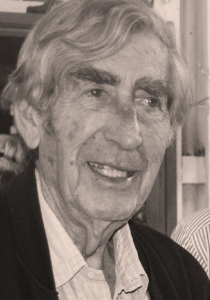
In July 1958, at the age of 27, he founded Vesco Plastics, known as Vesconite Bearings today, and devoted his career to the business. Known as “Mr Leger”, he was a creative problem-solver, doing much with minuscule resources. He grew a small-town business into a company with global sales. He was described as “a true scientist and chemist, he meticulously recorded every experiment, idea and experience of his life.” His painstaking dedication laid the foundation for the product range the company continues to have today.
He lived simply and was concerned that there should be a substantial philanthropic aspect to business success, so he funded projects that focused on early childhood development.
Spiritually, he would cite Pierre Teilhard de Chardin, a French Jesuit, to his son Jean-Patrick Leger (BSc Eng 1979, PhD 1992): “We are not physical beings having a spiritual experience; we are spiritual beings having a physical experience.”
He shared eight lessons for entrepreneurs with alumni relations in 2018.
Source: Leger family
Maurice McGregor (1920-2025)
Distinguished cardiologist and former dean in the Wits Faculty of Health Sciences between 1984-1987, Dr Maurice McGregor (MBBCh 1943, DScMed honoris causa 1974) died of complications related to Parkinson’s disease at age 105 on 4 August 2025. Over the years he played multiple roles in clinical cardiology, teaching, and research. He was a skilled administrator and leader, serving as dean of medicine at McGill University in Canada from 1966 until 1972. President of the Conseil d’évaluation des technologies de la santé du Québec and chair of the Health Technology Assessment Unit at the McGill University Health Centre, he received numerous awards, including the Order of Quebec and the Order of Canada.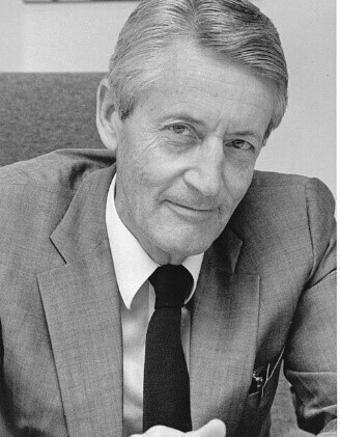
McGregor was born on an orange farm in Rustenburg on 24 March 1920, the second child of Frank and Ella (née Mills) McGregor. He matriculated from Michaelhouse and obtained his medical degree in 1943. Fresh out of medical school he served as a medical officer in Italy in World War II. He completed his medical internship after the war and left for England for a postdoctoral residency in cardiology, where he married his wife Margot Becklake (MBBCh 1945, DScMed honoris causa 1974). In 1957 the family emigrated to Montreal when he was recruited by McGill University.
The couple shared a legacy of leadership with Becklake becoming one of the Montreal Chest Institute’s “Fab Five” and a globally renowned pioneer of respiratory medicine and epidemiology. She passed away in 2018. McGregor moved up in stature having more than 180 publications to his credit and is recognised for his novel and decisive contributions to the understanding of pulmonary hypertension and coronary ischemia.
In 1984, Wits asked him to take on the role of dean of the Faculty of Medicine. He set up a committee to eliminate apartheid practices within the faculty, which met monthly until it was dissolved in July 1991. Among others, it organised a petition signed by 926 faculty members calling for the unification of health services, approaching numerous levels of government. During his tenure, the government repealed the decision that black students needed to obtain ministerial approval to attend ‘white’ universities and the percentage of black students admitted to the medical school rose from 10% to 30%.
Returning McGill University in 1987 he served as dean of medicine, becoming the inaugural director of a ground-breaking provincial council that evaluated health technologies entering the healthcare market – the first such council in North America. In 2014, the Canadian Agency for Drugs and Technologies in Health created the Dr Maurice McGregor Award. In 2020, in honour of his 100th birthday, McGill announced that its cardiovascular research day would now be known as the Maurice McGregor Cardiovascular Research Day.
On his 101st birthday, McGregor was interviewed by the youngest student at Michaelhouse. Asked what advice he had to share, his reply was simple and concise. “You can waste life or live it,” he said.
He is survived by his son James (BSc 1973) and daughter Margaret; his grandchildren, great-grandchildren and numerous nephews and nieces.
Sources: McGill Health-e News, Wits archive
Sydney Lipworth (1931-2025)
Distinguished barrister Sir Maurice Sydney Lipworth (BCom 1952, LLB 1954, LLD honoris causa 2003), who enjoyed a wide-ranging career in law, business and the public service, died in London at age 94 on 27 June 2025.
He was born in Johannesburg on 13 May 1931, the son of Isidore Lipworth (originally Lipschitz, of Lithuanian and Latvian descent) and his wife Rae. He was educated at King Edward VII School, where his classmates included Sir Donald Gordon (DEconSc honoris causa 1991) and Sir Mark Weinberg (BCom 1952, LLB 1954, DEconSc honoris causa 1990). He graduated with both business and law degrees from Wits cum laude. He was joint winner of the Alexander Aitken Medal in his commerce class and the Society of Advocates Prize for the best law graduate in his LLB graduating class. He qualified as an attorney in 1955 and was admitted to the bar in 1956, practising as an attorney for eight years.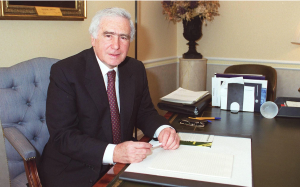
Lipworth was one of a trio of liberal-minded lawyers who left apartheid South Africa along with Sir Mark and Lord Joel Joffe (BCom 1952, LLB 1954, LLD honoris causa 2001), the latter having been a defence attorney for Nelson Mandela and other ANC leaders in their 1963-64 “Rivonia” trial on charges of sabotage. Also in their circle was Gordon who remained in South Africa to build Liberty Life but was later a property tycoon and philanthropist in the UK. Lipworth advised him at Liberty Life in the 1950s before moving to London to join Weinberg in the launch of their insurance business, Abbey Life.
After Abbey Life was acquired in 1970 by the US conglomerate ITT, the trio moved on. With Weinberg as the driving entrepreneur, Lipworth as a shrewd business brain alongside him, and Joffe as the corporate conscience urging them to give profit-shares to charity, they built a new business which evolved from Hambro Life to Allied Hambro and ultimately Allied Dunbar, a constituent of the FTSE 100 index until it was taken over at a rich price by BAT Industries in 1986.
Lipworth was deputy chairman of Allied Dunbar until 1988, when he took on the full-time chairmanship of the Monopolies and Mergers Commission for a five-year term. Lipworth was immune to “lobbying or political bullying”, one profile noted, and had no truck with “trimming to the fashion of the day”. That took him to the chair of the Financial Reporting Council, overseeing audit professionals and corporate governance, and he became a powerful voice on other committees and in other boardrooms.
He also chaired the trustees of the Philharmonic Orchestra and gave his support to the Royal Academy, the South Bank Foundation, Sadler’s Wells and the Contemporary Dance Trust. For recreation he enjoyed tennis as a member of Queen’s Club. He was knighted in 1991 and appointed an honorary QC in 1993.
In 1957 he married Rosa Liwarek, who was introduced through Arthur Chaskalson (BCom 1952, LLB 1954, LLD honoris causa 1990). She was appointed CBE in 2010 for her own charitable work and together they were significant benefactors of Wits and graciously hosted Wits alumni in their beautiful London home on many occasions. She survives him with a son; another son predeceased him.
Sources: The Telegraph and Wits archives
Hans Christian Benecke (1941-2025)
Hans Christian Benecke (BCom 1965) died at the age of 84 in Johannesburg after a long battle with cancer. He was director of Atlas Organic Fertilizers for decades, “both through good and bad years”. As a notable rower during his time at Wits, Benecke was the president of the Wits Boat Club and did much to rebuild its depleted resources. During the Wits 1975 Henley and European tour, he hosted the entire crew at his family home on of Lake Konstance in Switzerland.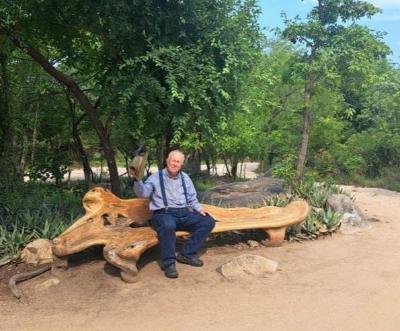
His charming personality, wicked wit and fantastic memory allowed him to befriend many and catalogue and maintain an extraordinary archive of lives. He loved to reminisce on the glory days of the Club, and its wild adventures.
A tribute was written by a close friend, Derrick Read (BA 1965), for his funeral which said: “Hans loved South Africa, the Orange River, the Zambezi, the Vaal. A pioneer, an explorer with a passion for nature and the beauty around its creation, and the people who lived in those spaces, and coming from a family at the forefront of development in Southern Africa, Hans grew his love for Africa from the deserts of Namibia, and the grasslands and mountains of Zimbabwe, to the diamonds on the banks of the Orange River… The people of those areas meant much to Hans, the local people, the farmers, the tribesmen, he knew them all, respected and loved them, the salt of the earth. Hans spoke Afrikaans well and admired the faith, strength, and pragmatism of the community, especially the rural farmers and their families.”
He is survived by his Michele and three children, Paul, Josephine and Nicholas.
Sources: Derrick and Allison Read, Wynand and Landi Dreyer and Benecke family
Costa Gazidis (1936-2025)
Activist and medic Costa Gazidis (MBBCh 1962) died in London on 19 March 2025 at the age of 90. He had travelled from his Cape Town home in 2018 to visit family and friends in England but fell ill and never fully recovered.
The son of Greek immigrants, Gazidis was born in Krugersdorp and was initially accepted to study civil engineering but switched to medicine in 1953. At the start of his anatomy year, he was incensed on learning that black students were forbidden to dissect white cadavers. He read Karl Marx’s banned Communist Manifesto and became convinced of the possibility of an egalitarian future of racial equality and shared wealth.
Once qualified, he worked at the McCord Zulu Hospital in Durban and at Baragwanath Hospital in Johannesburg. In 1964 he was convicted for being a member of the Communist Party and spent two and a half years in Pretoria Central prison, much in solitary confinement.
After his release in 1966 he was subjected to a banning order. By 1968 his life in South Africa had become so untenable that he relocated with his young family to the UK. In his new home he studied for a diploma in public health before working as an assistant senior medical officer in Portsmouth, as a senior medical officer in Nottingham and then as a senior epidemiologist for the Public Health Laboratory Service in London.
Until the early 1990s he occupied various positions in community medicine until he returned to South Africa after the fall of apartheid, taking up a post as a public health specialist in Umtata in the Eastern Cape and as a senior lecturer at the University of Transkei medical school, before working as a community health specialist in East London from 1996 until retirement in 2004.
Soon after his return to South Africa he had begun prescribing AZT to pregnant mothers with HIV/Aids – until he was threatened with imprisonment by the ANC’s minister of health. Afterwards he funded the provision of antiretroviral drugs out of his own pocket and formed a charity, the ABBA Trust, to dispense them off hospital premises. Ultimately, his efforts, in conjunction with many others, changed government policy.
Despite his rebellious streak, he was happy and optimistic, and larger-than-life. He is survived by his third wife, Janet (née Page), whom he married in 2005, and by seven children: Amanda, Ivan and his stepson Peter from his first marriage to Dorothea Constantinides, Robert and Shona from his second marriage to Janet Moir, and Rita and Djamilla from two relationships before his marriages – with Ena Arnold and Laura Hitchens respectively.
Sources: The Guardian and Medical Class of 1960 archive
Naomi Livni (1937-2025)
Dr Naomi Livni (MBBCh 1960), who died aged 87, was a clinical pathologist, and specialist in urological histology in London.
She was born in Johannesburg, the second eldest of six. She matriculated from Parktown Girls High School, excelling in sport and academics. She recalled her initial interest in nuclear physics at Wits: “I was the only person in the queue for nuclear physics – when I approached the desk the gentleman seated there said to me “we only have two places for students in nuclear physics and you aren’t going to get either one of them – so run along little girl’. This was my first [and not the last] encounter with the glass ceiling! I left the room with not much of a clue as to what to do and joined the queue for medicine and was accepted.”
Halfway through her first year she met Leopold “Leon” Kahn [MBBCh 1960) and they were married two weeks after graduation. Through a serendipitous encounter, she applied for a job advertised at the South African Institute for Medical Research in cytology, which opened up a new career path in histopathology.
The family moved to the UK in 1989, after she accepted a post initially as consultant and then later as head of department at St George’s Hospital in Tooting. She later took up a post as head of cytology at Hammersmith, Charing Cross and Chelsea and Westminster hospitals, a position she remained at for 16 years and in which she oversaw many changes. After her retirement in 2008, she took up a position as lead uropathologist at the Royal Marsden Hospital where she worked for the next 6 years: “This was a wonderful time working with many leaders in my field,” she shared in 2020.
The last 18 months of her life were difficult as colon cancer, which had been in remission, returned. She said in 2020 that “My incredible husband and my wonderful children have been my greatest champions. My ultimate accolade is that both my sons chose to marry career women.”
She is survived by her husband Leon, two sons Leonard (MBBCh 1984) and David (BSc 1983) and their families.
Source: Alumni correspondence and medical class of 1960 newsletter
Lynn Gamsu Freed (1945-2025)
South African born author Lynn Ruth Freed (BA 1967) died of lymphoma at the age of 79 in Sonoma, California on 9 May 2025.
She was the third and youngest daughter of Anne (Moshal) and Harold Derrick Freed, born on 18 July 1945. She captured in fiction and memoir her father, her fiercely ambitious mother, and their theatre company and exuberant household in Durban in the 1950s and 1960s. "The real world of my childhood," she wrote, "was a large subtropical port on the Indian Ocean, with beaches and bush and sugarcane and steaming heat, a strict Anglican girls' school, massive family gatherings on Friday nights and Jewish holidays, and then my parents' theatre world...this world did not exist, not even peripherally, in the literature available to me."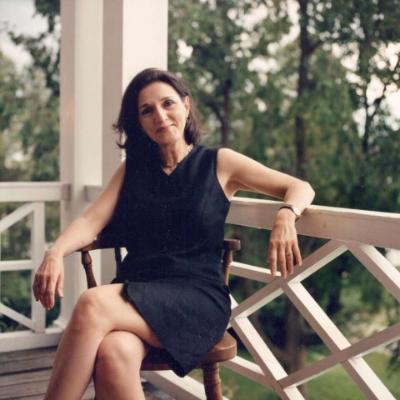
She first went to the United States as a high school exchange student with the American Field Service and shortly after receiving her degree from Wits, she enrolled as a graduate student in English literature at Columbia University and earned her doctorate. She moved to San Francisco in 1970 and lived in Sonoma from 1989 till her death. She was professor emerita of English at the University of California, Davis, where she taught for 15 years. She was also a member of the core faculty of the MFA program at Bennington College and a frequent faculty member at the Bread Loaf Writers' Conference in Vermont.
Her style has been described as “mordant and darkly comic”, exploring her Jewish upbringing during apartheid. She wrote seven novels Heart Change (1982), Home Ground (1986), The Bungalow (1993), The Mirror (1997), House of Women (2002), The Servants' Quarters (2009), and The Last Laugh (2019). She published a collection of stories, The Curse of the Appropriate Man, in 2004, and two volumes of essays: Reading, Writing, and Leaving Home (2005) and The Romance of Elsewhere (2017).
In 2002, the American Academy of Arts and Letters awarded Freed the inaugural Katherine Anne Porter Award in fiction. She received fellowships from the National Endowment for the Arts and The Guggenheim Foundation among others.
She often expressed ambivalence about leaving South Africa and feeling displaced: “I saw my bifurcated life for what it was: as a failure of daring. I had not dared to remain. More than this, I had been a show-off in my leaving. And I was still showing off — leaving there, leaving here — keeping the truth for the writing itself, hiding it away like a criminal. For what is writing, after all, but a bid for the truth? And what is truth if not the life at the very heart of failure?"
She is survived by her daughter, Jessica Gamsu, and her granddaughter, Georgia.
Her first marriage, to Gordon Gamsu, ended in divorce. She was married to Robert Kerwin until his death in 2021.
Sources: Legacy, The San Francisco Chronicle and The New York Times
Jacqueline Galpin (1950-2025)
Former head of school in the Department of Statistics and Actuarial Science, Professor Jacqueline Galpin (BSc Hons 1972) died on 18 May 2025.
Affectionately known as Jacky, she began her career at the Council for Scientific and Industrial Research (CSIR) in 1973 before joining the Department of Statistics and Actuarial Science at Wits University in April 1990 as a senior lecturer. She served the department for many years, including a term as Head of School from June 2003 to December 2007.
As a lecturer at Wits, she developed several courses, and her research covered both theoretical and applied areas, particularly regression, sampling, small-area estimation, and official statistics. Although she officially retired from Wits in 2008, Galpin continued to contribute to academia, first as a contract lecturer at Wits until 2017 and later as a Visiting Senior Research Associate at the University of Johannesburg in 2019.
She served on the executive committee of the South African Statistical Association for 21 years, and was elected president and honoured as a fellow in 1998. She played a central role in organising, and served as managing editor, of the South African Statistical Journal from 1988 to 2005. Galpin was also a council member of the South African Council for Natural Scientific Professions and represented the South African statistical community internationally.
Her passion for advancing statistical literacy, empowering women in statistics, and training educators, government officials, and official statisticians was unwavering. Jacky was known for her warmth, generosity, and tireless support of students and colleagues.
Her only family member and beloved husband, Richard, passed away on 29 August 2021.
Source: Wits news
Ronald Byron Goldberg (1945-2025)
Dr Ronald Byron Goldberg (BSc 1966, MBBCh 1969), a distinguished endocrinologist, died on 4 May 2025 in North Carolina, in the United States. Dr Goldberg emigrated to the US in 1977 and was born in Johannesburg to Zena and Monty Goldberg. After several years at the University of Chicago he joined the faculty of the University of Miami School of Medicine where he had a long and distinguished career specialising in diabetes prevention and lipid metabolism.
He held numerous leadership roles, including chief of the Division of Diabetes and Metabolism, director of the DRI Kosow Diagnostic and Treatment Center, and co-director of the DRI Clinical Research Laboratory. He was also a diplomate of the American Board of Clinical Lipidology.
Dr Goldberg focused his research on preventing type 2 diabetes and its complications, particularly cardiovascular disease, as well as advancing the understanding of lipid metabolism and atherosclerosis. He was a principal investigator in the NIH-funded Diabetes Prevention Program and the DPP Outcomes Study, among other NIH- and industry-sponsored studies. His collaborative work extended to major public health investigations, including research on stroke, HIV-related atherosclerosis, and the metabolic effects of environmental factors in immigrant populations.
He was also committed to medical education. He directed the Southeast Florida Diabetes Center Program from 1996 to 2008 and mentored countless students, residents, and fellows. His work with the University of Miami Lipid Disorders Clinic and his role as the ADA’s representative on the ACC/AHA 2018 Cholesterol Guidelines Committee exemplified his dedication to translating science into practice.
At the age of 44, he became paraplegic following complications from spine surgery. He continued to excel professionally, contributing significantly to landmark research and providing empathic and effective care for his patients well into his 70s. He was a gifted pianist and a lover of music.
He is survived by his wife, Norma Jean Peck Goldberg; his three sons from his first marriage to Nathalie Rudy; and his four grandchildren. He is also survived by Norma’s three children; and by four additional grandchildren.
Sources: Morrisfamilycare group.com and diabtesresearch.org
Robert Pullen (1939-2025)
Distinguished leader and former president of the South African Institution of Civil Engineering, Robert Pullen (BSc Eng 1961, MSc Eng 1970) died on 27 May 2025 at the age of 85.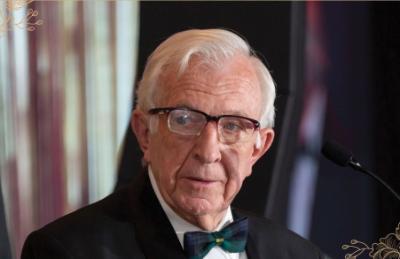
His career trajectory reflected a unique balance of technical expertise, visionary leadership, and public service. He held senior roles in planning and construction, contributing significantly to iconic national projects and policy-making, including the drafting of South Africa’s first major water policy document.
In 1963 he joined the Hydrological Research Unit (HRU) at Wits to work as a research engineer under Professor Des Midgely (DSc honoris causa 1986). His research was related to the development of practical methods for addressing flooding. His master’s thesis provided a major component of the seminal “Design Flood Determination in South Africa”, which became the standard reference for flood analysis and the design of protection works in South Africa.
In 1969 he joined the Department of Water Affairs and Forestry, where he held management positions in planning and construction, including that of resident engineer on the Tugela-Vaal inter-basin transfer project for augmenting the supply of water to the Witwatersrand. He made innovative contributions and was also involved in the planning and design of the Drakensberg pumped storage scheme for incorporating hydroelectric power generation.
He left a promising career in public service for private consulting in the water resources field and was a director of SRK Consulting from 1982 to 1985, director of Consultburo from 1985 to 1997 and director of BKS after its merger with Consultburo from 1997 to 2002. He became Deputy CEO of BKS Group in 2002.
In May 2009 he was presented with the National Science and Technology Forum Award in Category C (for activities other than research and its outputs over the last five years or less) for 2008/9 by the Minister of Science and Technology for his contribution to the regulation of the engineering professions and his contribution to civil engineering and environmental practice. In 2013 Wits awarded him a Gold Medal for his “outstanding contribution to the practice of water resources engineering and especially to the wider engineering profession in South Africa”.
He will be remembered not only as a brilliant engineer and strategic thinker but as a man of great integrity, humility, and warmth.
Sources: Wits archives and SAICE
Jan Peter Reynders (1940-2025)
Distinguished academic in the field of high voltage engineering and former dean of the Faculty of Engineering, Professor Jan Peter Reynders (BSc Eng 1965, PhD 1979), died on 16 April 2025 at the age of 84.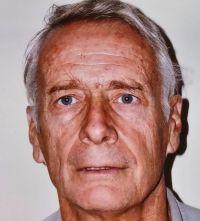
He earned his PhD in electrical engineering in 1979 and started lecturing in his 20s under Prof Guerino Bozzoli – continuing his relationship with Wits well into his 70s. He pioneered the establishment of the Wits high-voltage laboratory in the 1980s and advanced research in gas-insulated switchgear in South Africa. As part of the Johannesburg Lightning Research Laboratory, founded in 1992, Reynders made significant contributions to addressing problems caused by lightning on power and telecommunications systems.
His leadership extended to collaborations with high voltage facilities at universities, universities of technology, and industry, earning him international recognition. As chair of the organising committee, Reynders played a pivotal role in hosting the 16th International Symposium on High Voltage Engineering in South Africa in 2009, a testament to his global stature. He served as president of the South African Institute of Electrical Engineers and was actively involved with Cigré, the International Council on Large Electric Systems, shaping power systems research worldwide.
After his retirement, Reynders became a fully ordained Methodist minister, offering a “non-itinerant, non-stipendiary service” – in remote congregations where he was needed most. He was a quiet man, with a gentle sense of humour. “He was never dismissive or flippant, tackling even the smallest tasks with seriousness and attention to detail,” the congregation at his memorial service was told. He integrated his faith and science effortlessly and was a specialist at fixing things with his hands – as carpenter and qualified electrician – and passed these skills on to his children and grandchildren.
In his final years, Parkinson’s had a devastating impact, but his true character shone through and he became gentler and more peaceful.
Reynders is survived by his wife Joan; sons David (BSc Eng 1994, MSc Eng 1999), and Stephen (BSc Eng 1996, MSc Eng 2002) and their extended families.
Sources: Wits archives and memorial service
Geoffrey Klass (1948-2025)
Johannesburg’s extraordinary bookseller Geoffrey Klass (BSc 1972) died on 27 February 2025 after a short illness. He co-founded a bookshop, the Collectors Treasury, in 1974 with his brother Jonathan, which became an institution for the city’s bibliophiles.
Klass was born in 1948 to psychiatrist father Dr Max Klass and Maisie (née Goldberg) in Johannesburg. His grandparents Solomon and Zelda Klass were immigrants to South Africa from Lithuania and they sold everything from ginger beer to baby clothes. Solomon bought property and acquired the Johannesburg Ritz Hotel and later owned a residential hotel in Berea, and for a time he was the owner of the Radium Beer Hall. Klass attributed his love of books and collecting to his father. Books were part of the family home in Doveton Road in Parktown West, while Maisie was an avid antiques collector.
“We inherited a well-rounded view of cultural matters, and we were instilled with a love of objects and the history behind them. We don’t specialise, we don’t see boundaries, we see everything in a broad stream of culture,” Klass said in a 2005 interview with the Heritage Portal. He matriculated at Parktown Boys High and went on to read for a Bachelor of Science degree at Wits, graduating in 1972. His interests were broad and “the academic trajectory was too narrow for his exploding mind.” He declined the opportunity to study on a fellowship, for a PhD in Chicago.
In 1991 the Klass family bought a building at 244 Commissioner Street in old Johannesburg and part of the revitalised Maboneng to house their massive collection. It was an old face-bricked, eight-storey building which originally was an old clothing factory.
In addition to books, the stock extended to antique maps, old engravings and prints, printed ephemera, periodicals, newspapers and photographs. They also curated and dealt in vinyl records and 78rpm discs. The shop housed an extensive range of small antiques and collectables, with a strong emphasis on the decorative arts between 1870-1970, glassware, ceramics and porcelain.
Klass was the founding member and first chairman of the South African Bookdealers Association, the official body for out-of-print bookdealers in Southern Africa. He is survived by his brother Jonathan and sister-in-law Jenny, niece and nephew Mathew and Rebecca, and by his beloved partner, Gundi Weinick.
Source: Kathy Munro, Heritage Portal
Andrew Dickson (1940-2025)
Former head of school in the Faculty of Mechanical Engineering at Wits Professor Andrew John Dickson (BSc Eng 1962, MSc Eng 1964) died peacefully at the age of 84 in his home in Colorado, US. Dickson matriculated from St John’s College and he was awarded with both a graduate and master’s degree in mechanical engineering from Wits. He received a scholarship to the Massachusetts Institute of Technology soon after and completed another master’s in electrical engineering. On returning to South Africa, he worked as an engineer in Mokopane for several years before returning to Wits as lecturer in Engineering Design in the School of Mechanical Engineering. Teaching was his first love. He was well-liked and respected by his students and fellow academics. He always had time to help his students and never turned anyone away from his door. In the early 1980s Eskom lured him back into the profession. He went on to have an illustrious career in Eskom and was, for many years, generation engineering manager. He played a major role in the team which included John Maree (BCom 1949) and Ian McRae (BSc Eng 1954, DSc Eng honoris causa 1989), who built Eskom into being one of the finest generation companies in the world at the time.
In the mid-1990s he returned to Wits to take up the Eskom Chair of Engineering in the Faculty. He remained in that role until his retirement. Soon after retiring, he and his wife Pam (BSc 1962) moved to Colorado to be closer to their daughter Susan van den Heever (BSc 1989, PDipEd 1989, BSc Hons 1991, MSc 1995), who is a distinguished professor of atmospheric science at Colorado State University.
Source: Dickson family
Christopher Julian Cooke (1940-2025)
Emeritus Professor in the School of Architecture, Planning and Geomatics at the University of Cape Town (UCT), Christopher Julian Cooke (BArch 1963, HDipTP 1972) died on 24 February 2025.
Cooke, known affectionately as Julian, started teaching at UCT in 1976 and retired formally in 2000, serving as the dean in the Faculty of Engineering and the Built Environment, as well as director of the school. He played a pivotal role in forging various programmes, as well as creating a curriculum that questioned the status quo, was politically progressive and anti-apartheid. Student projects in both planning and architecture were regularly set in the urban and rural conditions of the apartheid city of Cape Town, and small towns nearby. Architecture was understood to not only be a formal artistic or sculptural endeavour, but also a socio-political one.
He was editor of the journal Architecture SA from 1982 to 1987, and was re-appointed in 2003. He won several open architectural competitions in South Africa, and received many awards, including the South African Institute of Architects Gold Medal Award for architecture in 2015.
Cooke’s most significant work was the hostels upgrade programme which comprised approximately 3000 units in Nyanga, Gugulethu and Langa.
He said the squalid, barrack-like hostels reminded him of Charles Dickens’ “dark, satanic mills” of the European industrial revolution 150 years ago. The transformation took 15 years to accomplish, with Cooke establishing a relationship with the community he later he regarded as family.
He described moments of beauty he encountered: “The difference between the living conditions and the way places are occupied says something profound about the greatness and resourcefulness of human beings. In one room we meet a woman who is carefully braiding her daughter’s hair. The child is sitting on a bed covered with an immaculately embroidered bedspread and on the wall next to her is a large, framed picture of a curly-haired Jesus. I find the irony in the juxtaposition of such care and beauty with the crude hostel block difficult to bear.”
The project won the firm, Architects Associated, of which Cooke was part, the Impumelelo Innovations Award in 2004.His lectures were described as interesting and accessible. He came up with the idea of a project called “Ten dreams for Cape Town”. This was a project that brought together many architects and urban designers, to rethink and, importantly, to show, an alternative Cape Town that was more efficient, egalitarian and sustainable. This project culminated in a series of lectures for one of UCT’s Summer School courses in 2019, with an accompanying exhibition. It was later turned into a book titled A Vision for a Future Cape Town.
He had an unwavering belief in the project of architecture and continued to teach long after retirement from the school as well as creating courses for UCT’s Summer School.
He will be remembered as an “exemplary architect, urban designer, teacher and human being.”
Leah Simon (1927-2025)
Leah, known as “Lily” Simon, (BA 1947), née Edelstein died suddenly on 17 February 2025 in Sydney, Australia. She was born to impoverished parents in Krugersdorp. Being one of the brightest pupils in her school, she matriculated at the age of 16. She won a scholarship to study at the Wits, in residence, graduating at 19. Post graduation she taught English at her alma mater school, Krugersdorp High.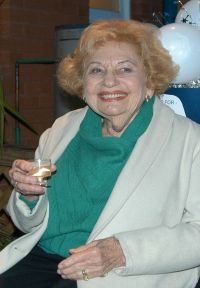
She married fellow Witsie Leslie Simon (BArch1950, PGDip TP 1965 in 1948 and had three sons: Alan (BA Hons 1978, MA 1979), Trevor (BCom 1983) and Clive (BSc 1982, BSc Hons 1983, PhD 1989).
The family emigrated to Sydney in 1999 where she continued to teach English to international students for a few years until she retired, noting that discipline was not quite the same as back in the day. She is predeceased by Leslie (2021) and Clive (2019) and is survived by her two sons and their families.
Lily had a love for Latin and English literature. She published poems, short stories and one of her proudest achievements was to publish Inyanga (Justified Press, 1993,) a story about Sarah Mashele, one of Soweto’s most famous witch doctors. She was both a serious and humorous writer as in the poem below illustrates:
Streaker by Lillian Simon
It all began when Mrs Plump
Long established as a frump
Said her life was dull and chaste
And surely virtue was a waste
Come full moon she began to streak
Suddenly reaching a brand new peak
Down the road the old bag trotted
After getting nicely potted
Her sagging breast and flabby belly
Would never have made it on the telly
Though not exactly love’s young dream
She’d found a way to let off steam
And even when the police stepped in
To cart her off to the loony bin
The latest mode of good head-shrinking
Failed to rearrange her thinking
In spite of being a tough nut
She was glad she’d shown the world her butt
Source: Simon family
Senamile Masango (1987-2025)
One of South Africa’s trailblazing black female nuclear scientists, Senamile Masango (PDM 2021) died aged 37, from an unknown cause, on 8 February 2025.
Dubbed “the queen of science”by some, Masango was born in KwaNongoma, in KwaZulu-Natal. She demonstrated a passion for learning and her family encouraged her to read extensively from an early age. She enrolled at the University of KwaZulu-Natal atthe age of 16 to pursue a Bachelor of Science in physics and electronics, followed by an honours degree in nuclear physics from the University of the Western Cape, where she conducted research on the B(E2) value in Neon-20. She completed a postgraduate diploma in energy leadership from Wits Business School.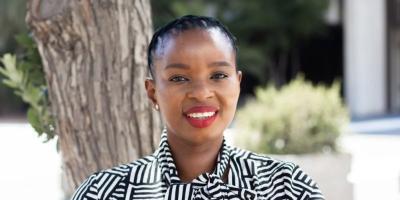
In 2017 Masango was part of the first African-led experiment at the European Organisation for Nuclear Research (CERN), one of the world’s largest particle physics laboratory. Her many accomplishments include being South Africa’s research leader at the BRICS Youth Energy Outlook in 2019, where her foundation led the winning team in 2020. Recognised among the 50 Global Inspirational Women of 2020 and a Women in Tech Global Awards finalist in 2021 and 2022, she received the prestigious International Women in Science Award, recognising her profound impact on the scientific community. She was the executive chairperson and founder of Mphathisithele Consulting PTY, and dedicated her career to empowering African women in STEM and advancing sustainable development goals.
At the time of her death, she was completing her doctoral studies in nuclear physics and was the founder of Women in Science and Engineering (Wise). Through Wise, Masango provided leadership and role models for young women wishing to enter the fields of science and engineering.
Proceeds made from her speaking engagements went towards raising money to provide science kits for disadvantaged schools. But throughout her career, Masango faced the discrimination black women face because of their race and gender. “The biggest challenge in my career is my skin colour. If you look like me, no-one believes in you; you must prove that you know your job and that you can think! There are still very few black women scientists. This means women like me have to work twice as hard to prove their worth,” she said.
Mehnaaz Ally (1980-2025)
Dr Mehnaaz Ally (MBBCh 2005) a dedicated paediatric palliative care practitioner, died on 6 February 2025. She was found unresponsive in her home after experiencing a massive internal brain haemorrhage.
A touching “walk of honour”was held for Ally as an organ donor, as she arrived at Milpark Hospital on the morning after her death. A large crowd of people turned up to show their respects as she was wheeled through the ward. The request had been sent out to “wear bright colours” as homage to her positive and colourful personality.
After completing her undergraduate degree in medicine from Wits in 2005, she pursued postgraduate studies in paediatrics, and then in paediatric palliative care. She successfully completed the post-graduate diploma in paediatric palliative medicine through the University of Cape Town in 2017, with distinction.
She worked at various palliative care NGOs, including WitsPal (Wits Palliative Care at Chris Hani Baragwanath Hospital), the Lambano Sanctuary, a paediatric step-down unit and hospice faculty in Germiston, the Rare Diseases South Africa as well as PatchSA.
According to her colleagues, her empathetic approach to care extended beyond clinical practice, she understood the importance of listening and advocacy. She was passionate about educating fellow healthcare workers about paediatric pain and had a special interest in neonatal pain and palliation. She also ran support groups and debriefing workshops for healthcare workers burdened by burnout and compassion fatigue.
Sources: Rare Diseases South Africa, Lambano Sanctuary and PatchSA
Harold Luntz (1937-2025)
Harold Luntz (BA 1957, LLB 1959), who was Emeritus Professor at Melbourne Law School, died at the age of 87 on 29 January 2025. He was one of the world’s foremost scholars and theoreticians of torts and damages law. A much-loved colleague and lecturer, he authored numerous articles, incisive case notes, engaging book reviews, comments on the direction of the law and other publications.
Luntz was born in Johannesburg, matriculating from Athlone Boys High School. After completing a Bachelor of Arts at Wits, he studied towards his LLB, serving articles of clerkship at the same time as undertaking the degree; both took three years. In 1960, he was employed for a brief period as a solicitor in a firm of solicitors in Johannesburg and then took a Bachelor of Civil Law at Lincoln College at the University of Oxford. He began publishing in academic journals in the early 1960s.
He emigrated to Australia in 1965, joining the Faculty of Law as a senior lecturer. He excelled as a writer and teacher. In 1970, he was admitted as a barrister and solicitor of the Supreme Court of Victoria and in 1976 was appointed George Paton Professor of Law, a position he held until his retirement in 2002. He also served as a successful Dean at the Melbourne University Law School from 1986 to 1988. Following his retirement, he continued to teach in the postgraduate programme until 2008.
Luntz took time off in 1970 to pursue his interests in comparative law as visiting associate professor at Queen’s University in Ontario, Canada. Later, in 1971, he was visiting professor at the University of California, Berkeley. But his commitment was to Melbourne and Australia. He returned as Reader in Law in July 1971. His professorial chair came in July 1976, and he served as dean over three years from 1986–88. He was twice a visiting fellow at Wolfson College, Oxford, where he was attached on each occasion to the Centre for Socio-Legal Studies.
He was awarded the degree of Doctor of Laws by the University of Melbourne in 1983. In 2000 he was the inaugural recipient of the John G Fleming Memorial Award for Torts Scholarship, and in 2003 he was awarded the AILA Insurance Law Prize. From 2007, the Harold Luntz Graduate Research Thesis Prize commemorating Luntz’s achievements as a “world expert on torts law” has been awarded annually to the Melbourne Law School graduate research student judged to have presented the best thesis in the previous year, provided that the nominee meets an overall level of excellence required for the award. The prize specifically honours Luntz’s contribution on the international stage and as a former dean. Luntz was made an Officer in the general division in the Order of Australia in the Australia Day 2019 Honours List “for distinguished service to legal education, as an academic and editor, to professional development and to the community”.
After Luntz’s retirement, Justice Michael Kirby wrote a tribute in the Melbourne University Law Review in 2003 titled Harold Luntz: Doyen of the Australian Law of Torts, saying Luntz was a lawyer who, unusually, “listened before he spoke”, a man with a reputation for “reading everything”; loved by his students “because he was a good storyteller”; and throughout his long, illustrious career displayed three great strengths: commonsense, practical wisdom and plain speaking.
Justice Kirby noted that Luntz’s childhood and experiences in South Africa shaped his outlook on justice profoundly: “His childhood and youth in that country had a profound effect upon his view of the world and of the law.
South Africa was never a lawless state. That, indeed, was the central problem. It embalmed in law rules that anyone with sensitivity (and particularly anyone who was from a minority) could see were offensive to human equality, to personal autonomy and to the effective operation of law as an instrument of justice. I venture to suggest that those early years left a mark on Harold Luntz that has stayed with him ever since. They help to explain his sense of urgency, his great energy, his pursuit of justice through law and his search for a better home to give voice to these ideals.”
Sources: The University of Melbourne, Wikipedia, Melbourne University Law Review


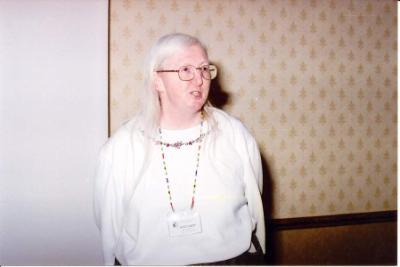
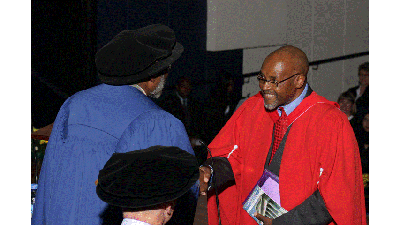
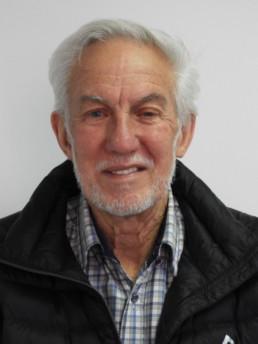

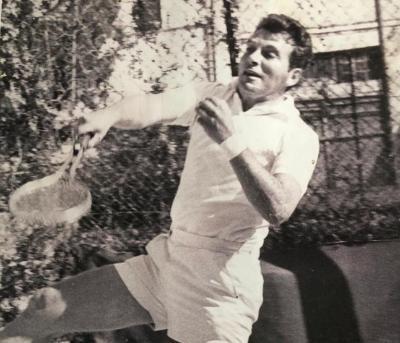
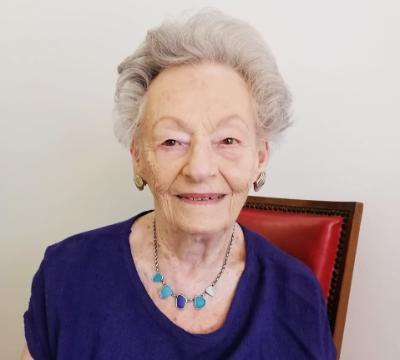
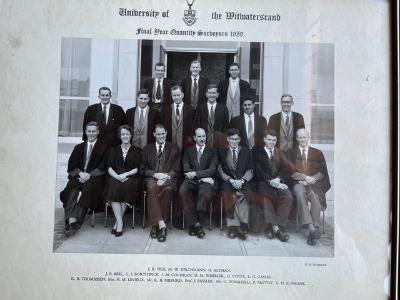
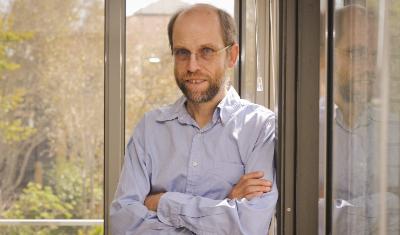
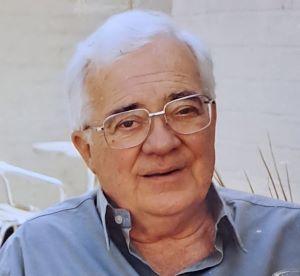
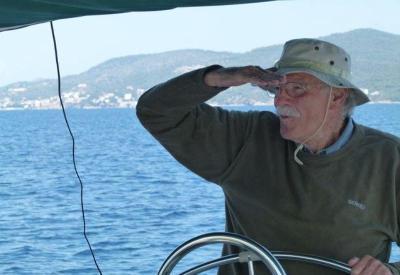
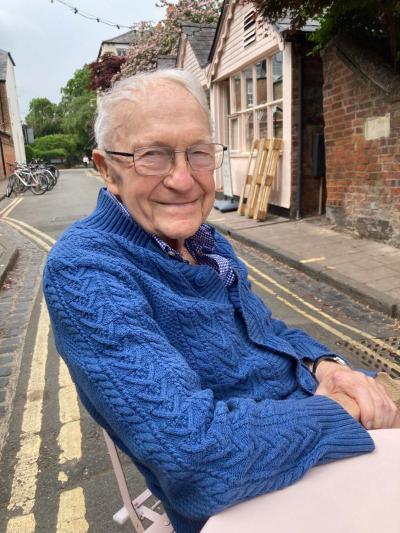

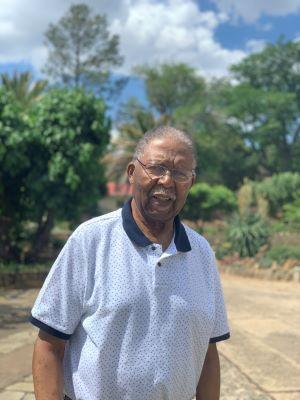
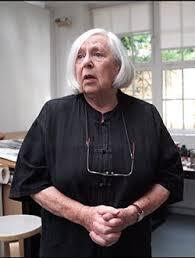
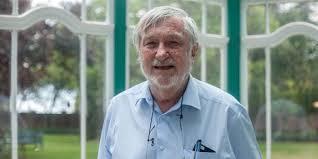
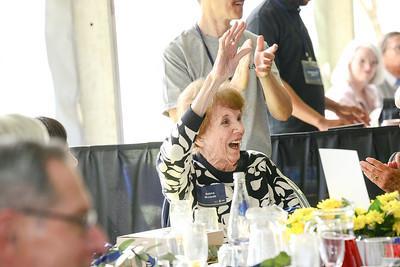
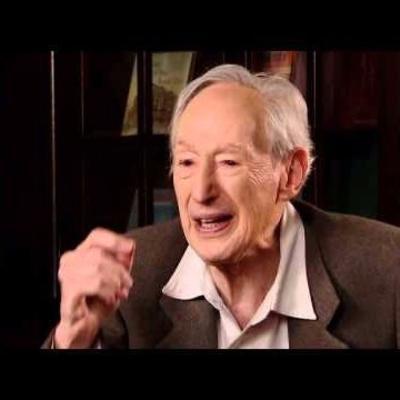

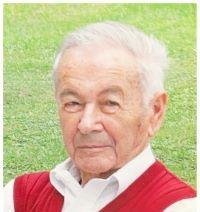
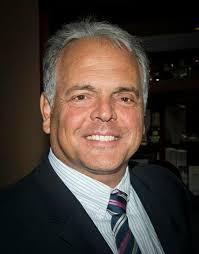
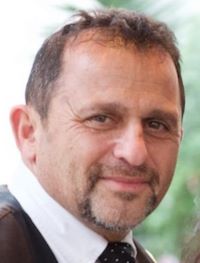
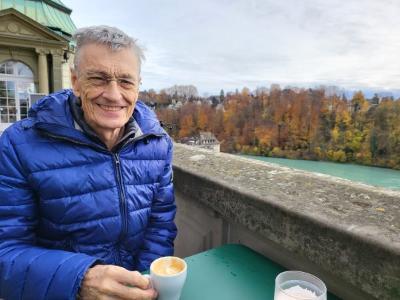
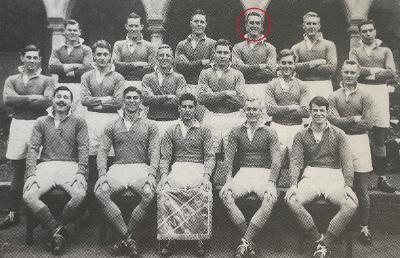
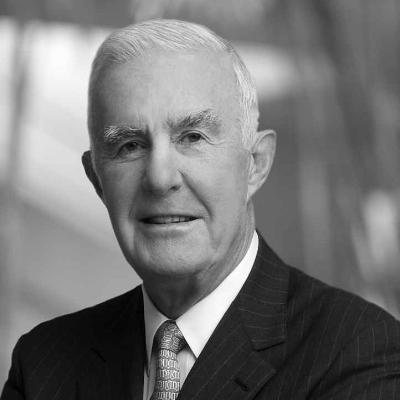
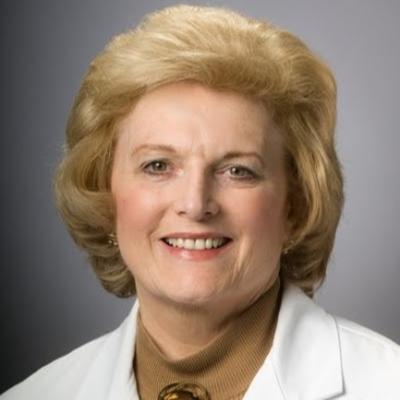
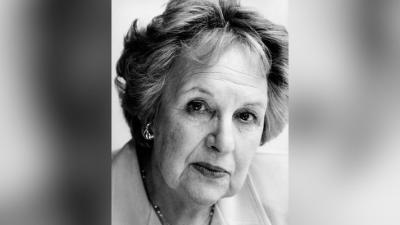
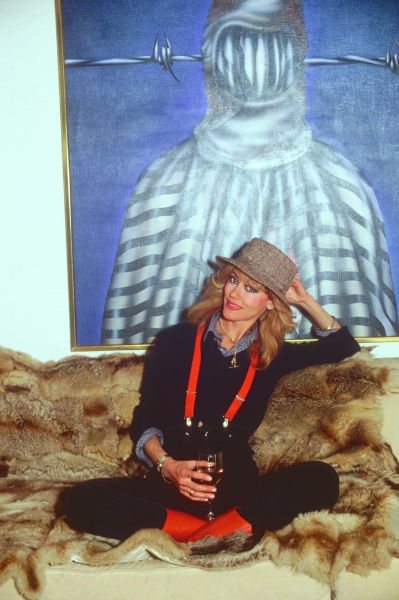
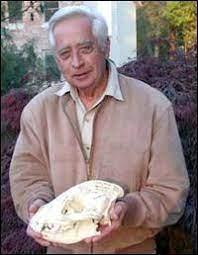
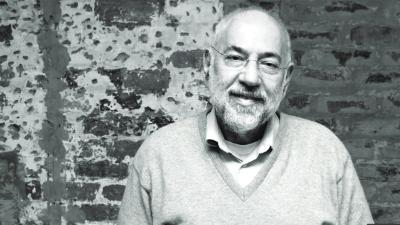
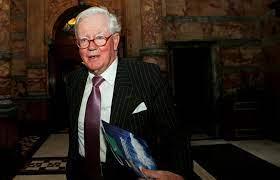
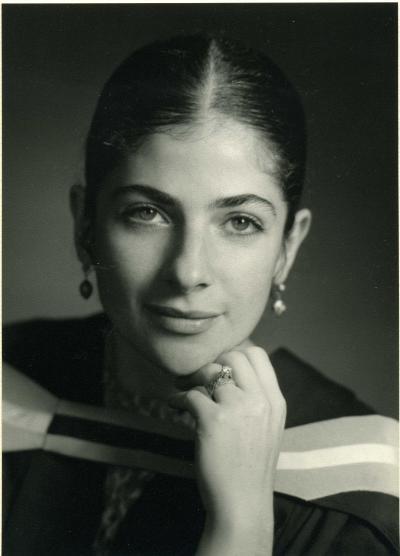
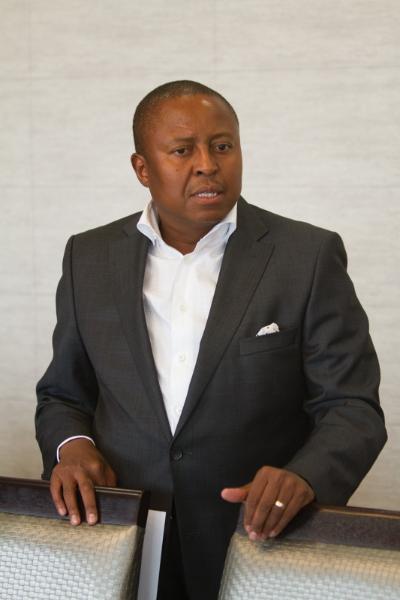
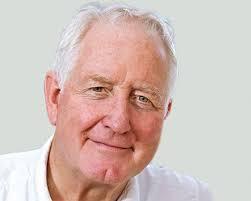
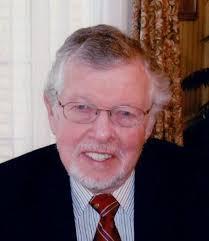

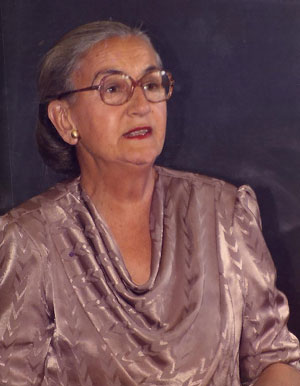
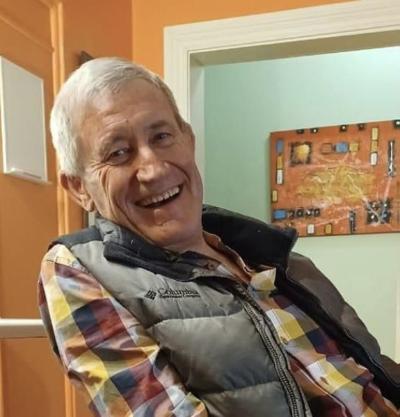
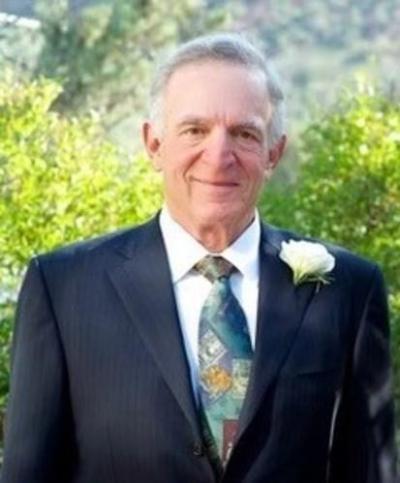
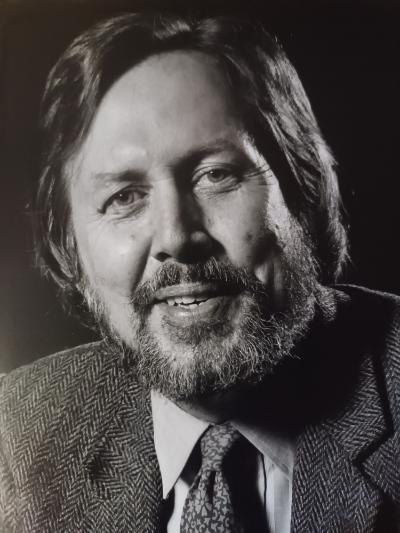
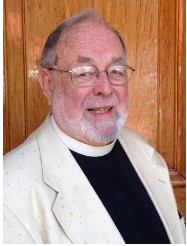 After a brief spell in the commercial world, he decided that his calling was in the church and he made the decision to become a Jesuit priest. He travelled to England in 1959 to commence his studies and was to be a peripatetic visitor over much of the next decade. He studied philosophy at Heythrop College in Oxfordshire, and on completion, in 1961, he returned to South Africa where he completed his BA at Rhodes University, majoring in history which was to become a particular interest throughout his life. He then served as a Jesuit Regent at St Aidan’s where he taught Latin, ran the choir and served as commodore of the sailing club. Three years later he returned to England to read theology. He was ordained to the priesthood, in London, in July 1970 and was to serve the Society of Jesus for 63 years. Always the academic his appointment as chaplain to Wits was itself almost pre-ordained and, in preparation for this, he spent two years as an assistant chaplain at the University of London.
After a brief spell in the commercial world, he decided that his calling was in the church and he made the decision to become a Jesuit priest. He travelled to England in 1959 to commence his studies and was to be a peripatetic visitor over much of the next decade. He studied philosophy at Heythrop College in Oxfordshire, and on completion, in 1961, he returned to South Africa where he completed his BA at Rhodes University, majoring in history which was to become a particular interest throughout his life. He then served as a Jesuit Regent at St Aidan’s where he taught Latin, ran the choir and served as commodore of the sailing club. Three years later he returned to England to read theology. He was ordained to the priesthood, in London, in July 1970 and was to serve the Society of Jesus for 63 years. Always the academic his appointment as chaplain to Wits was itself almost pre-ordained and, in preparation for this, he spent two years as an assistant chaplain at the University of London.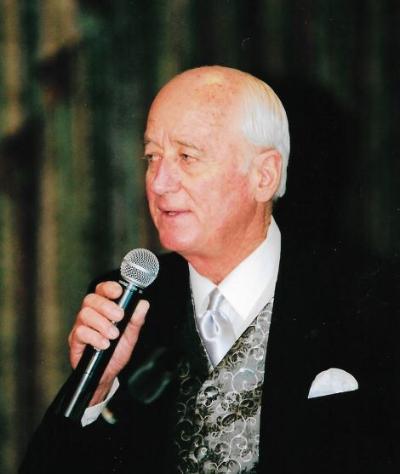
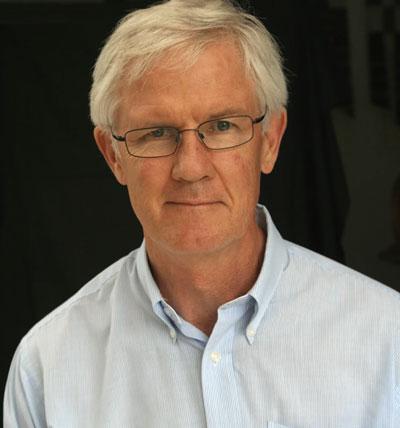
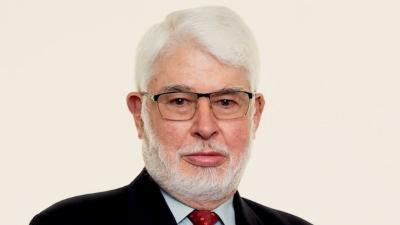
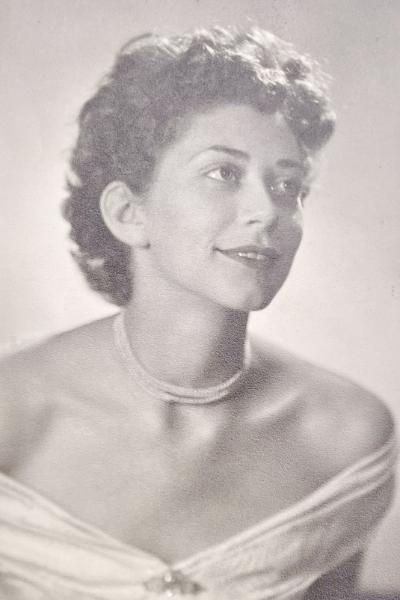
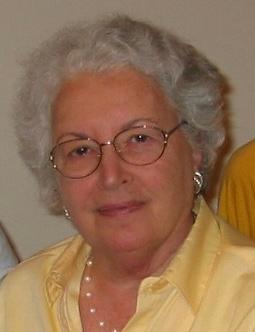
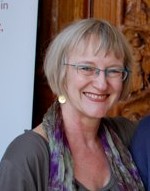
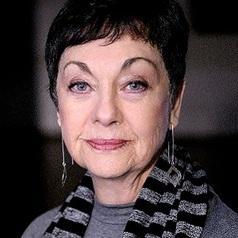 ersity’s Performing Arts Centre, doing administration “because I couldn’t get a teaching job without a master’s degree”. She registered to do a master’s in architectural history and was soon appointed as a lecturer of the history of art and architecture in the Department of Architecture.
ersity’s Performing Arts Centre, doing administration “because I couldn’t get a teaching job without a master’s degree”. She registered to do a master’s in architectural history and was soon appointed as a lecturer of the history of art and architecture in the Department of Architecture.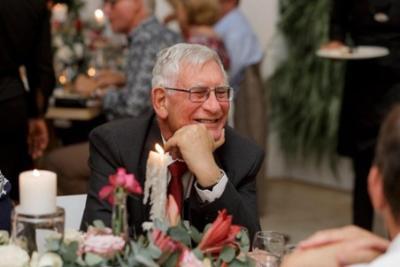
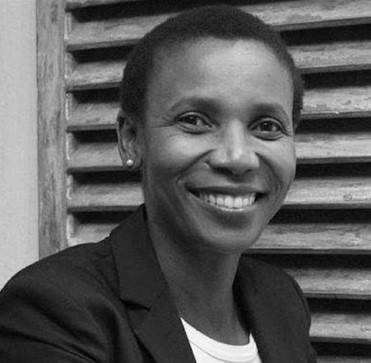
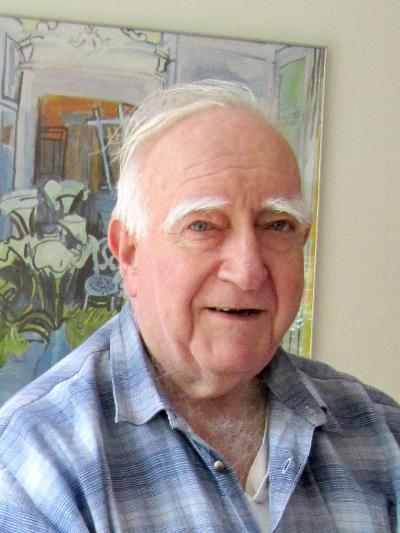
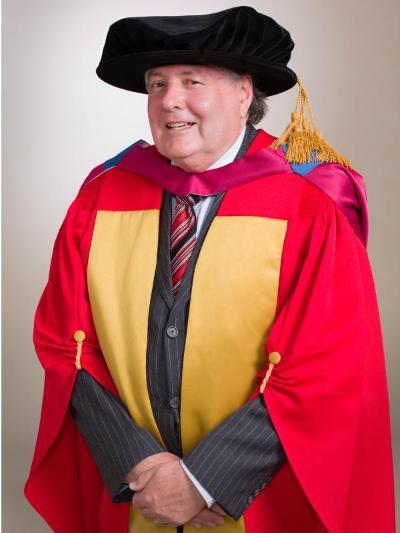
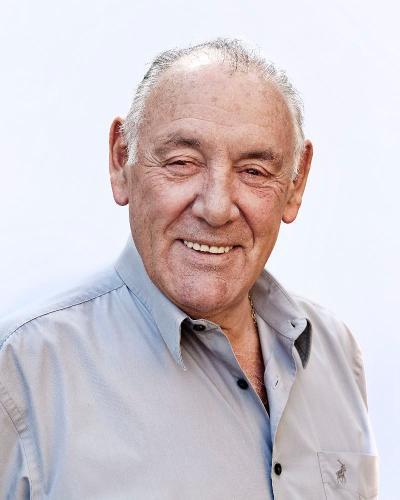
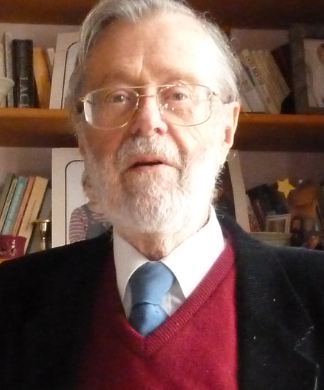
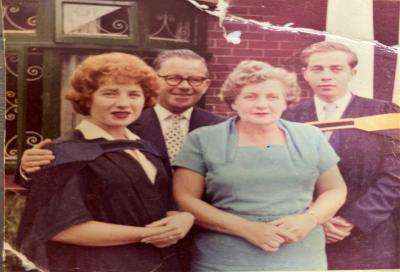
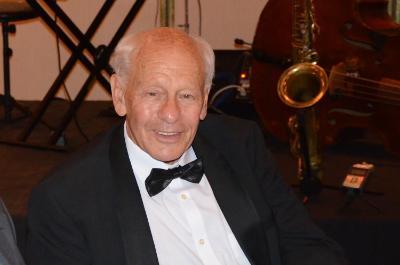
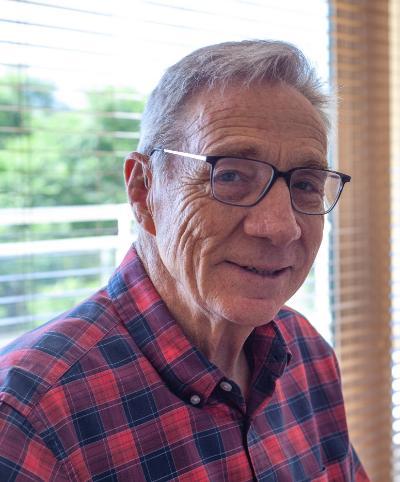
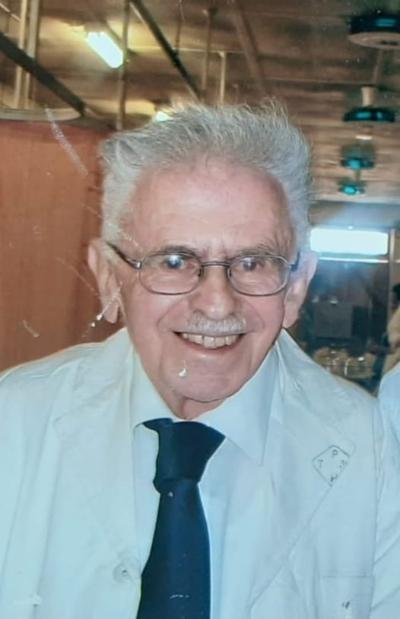
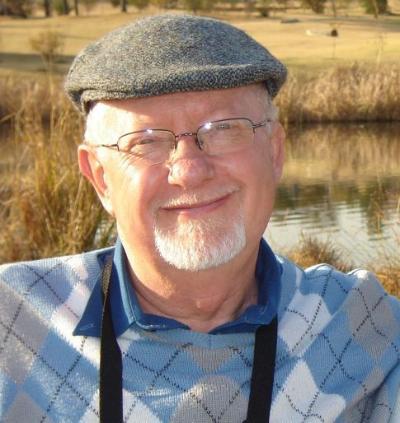
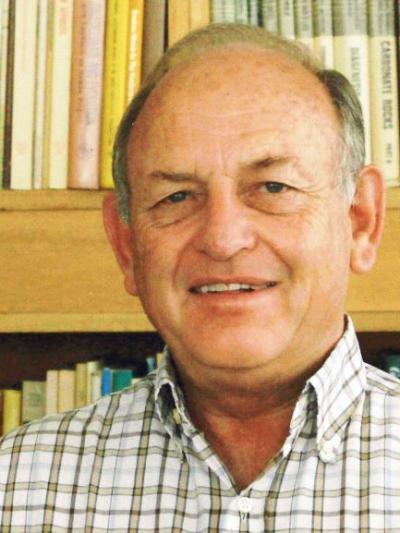
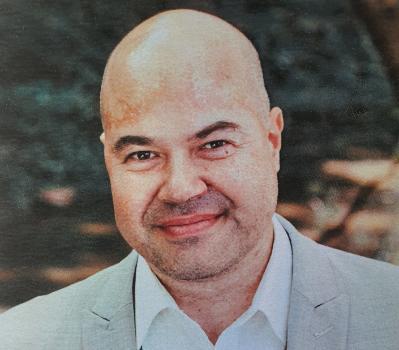

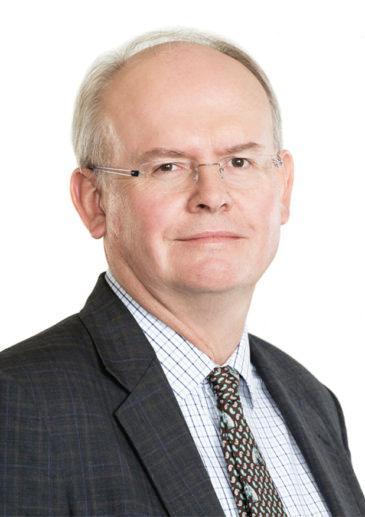
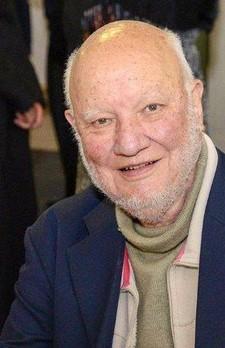
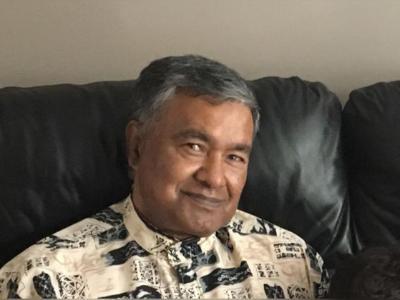
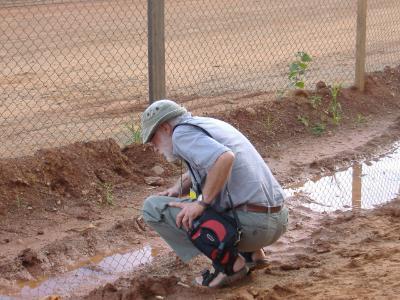
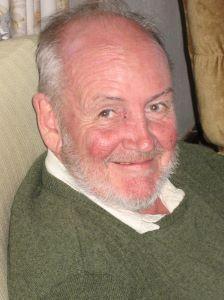
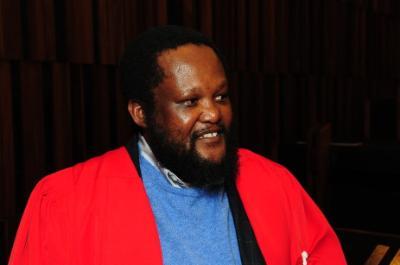
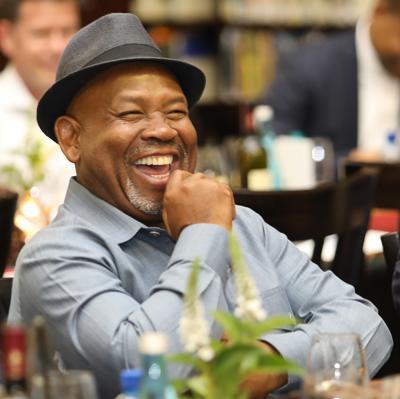
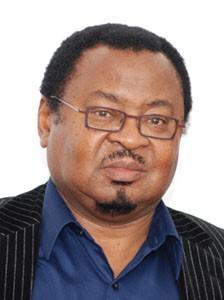
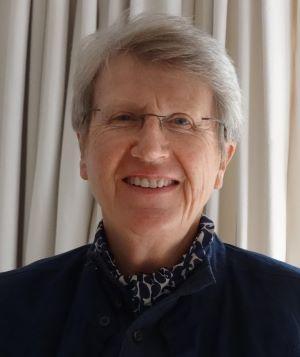
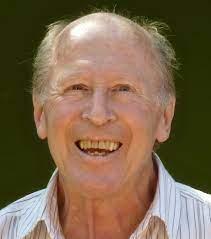
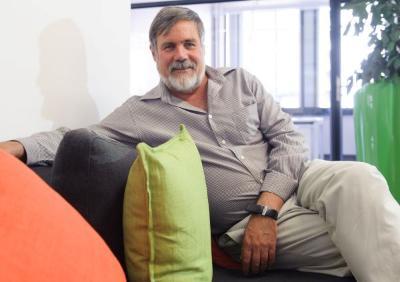
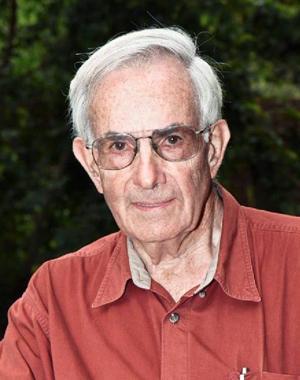
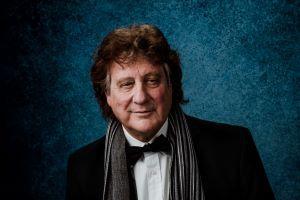
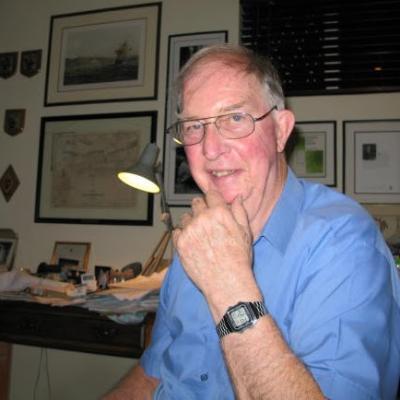
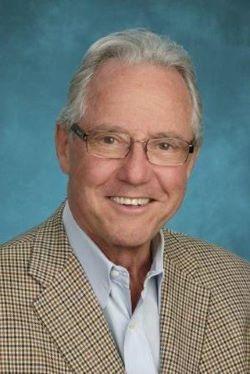
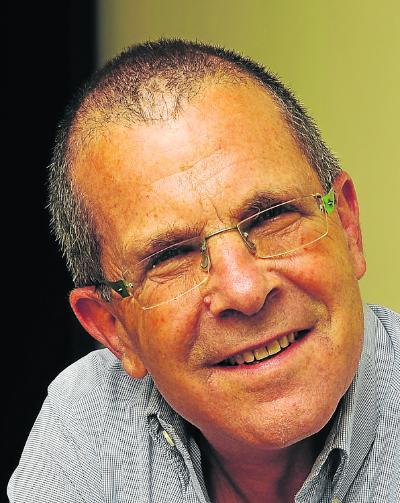 emocratic Front (UDF), he was detained and arrested numerous times for his involvement in the democratic movement. He was banned from 1976-81.
emocratic Front (UDF), he was detained and arrested numerous times for his involvement in the democratic movement. He was banned from 1976-81.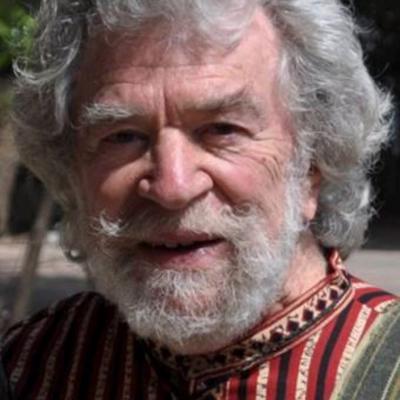
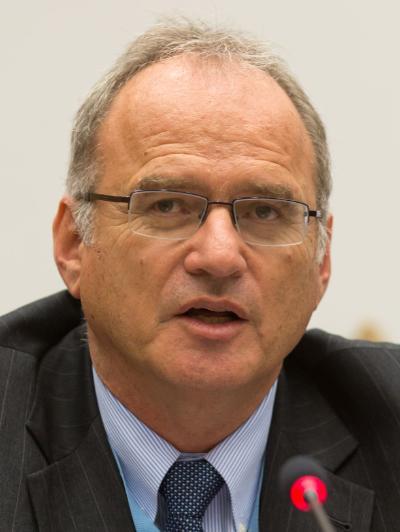
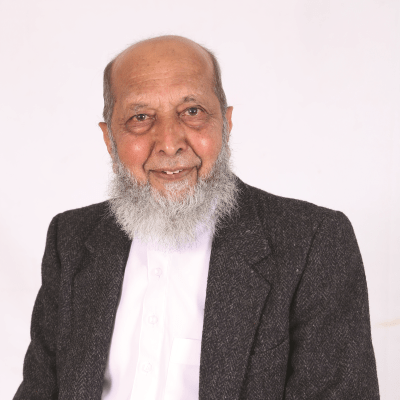 .
.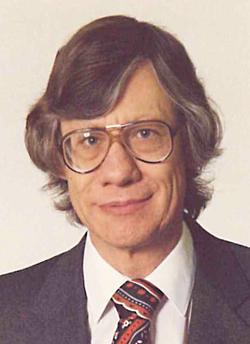

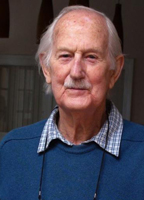
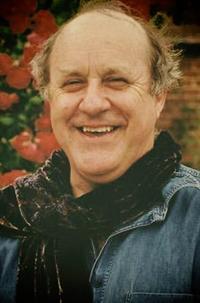
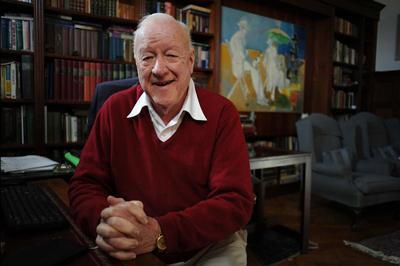
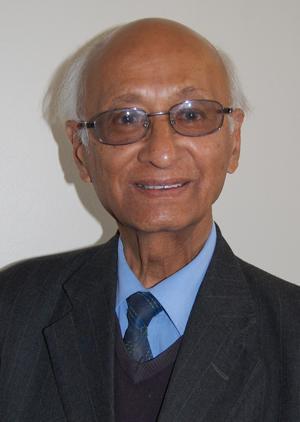
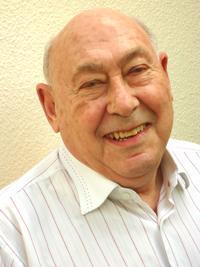
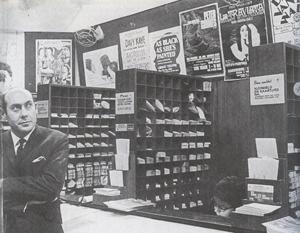
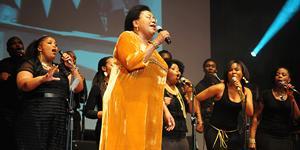
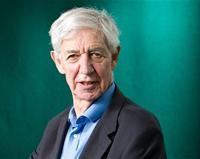
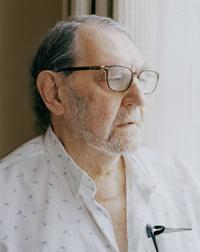
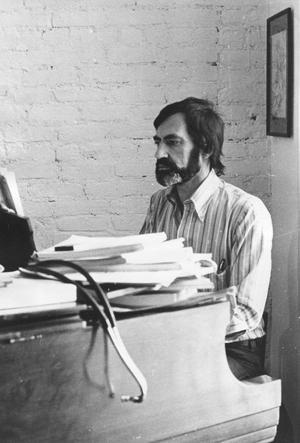

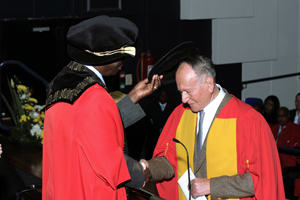
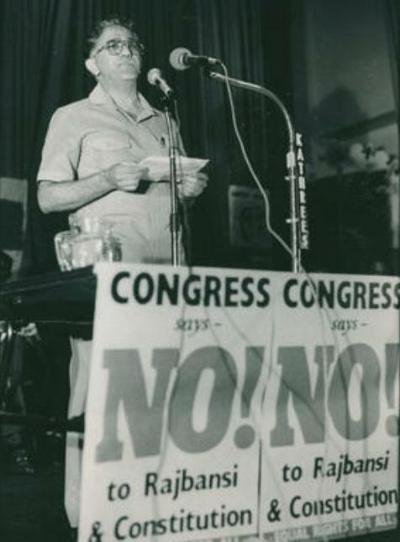
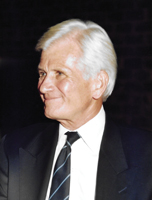
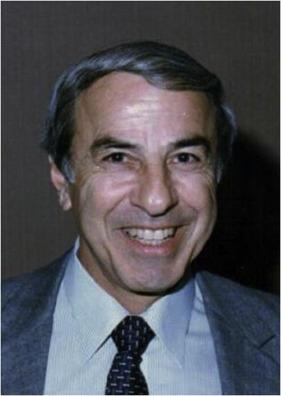
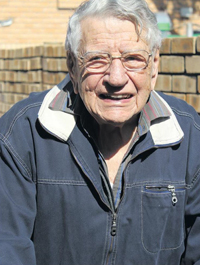
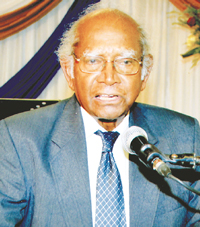
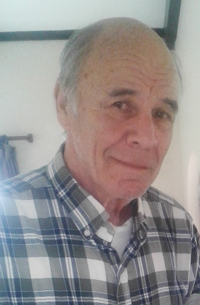
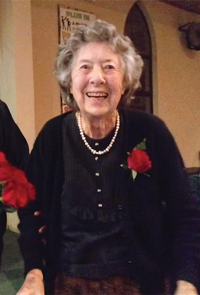

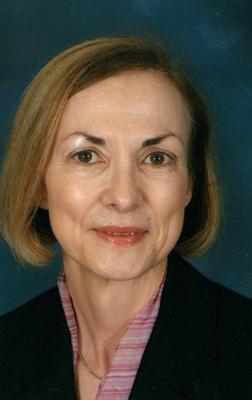
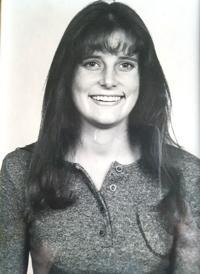
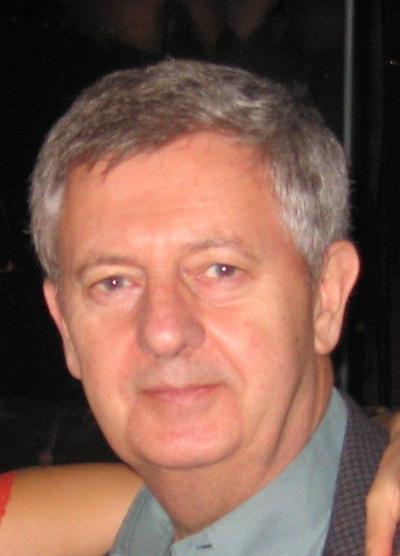
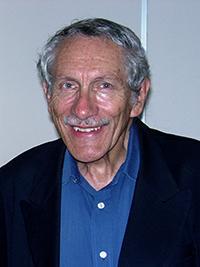
-400x410.jpg)


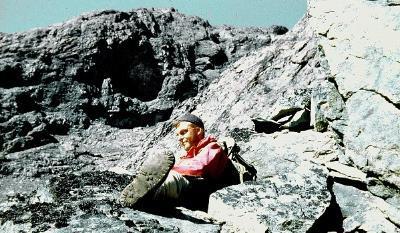
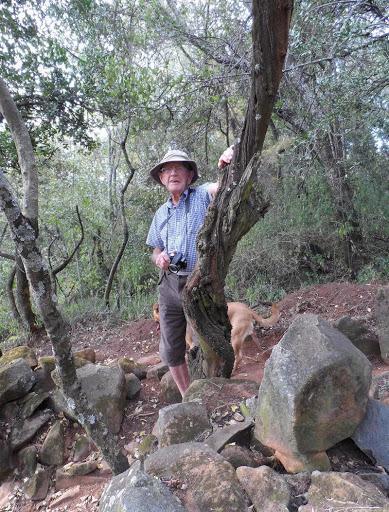
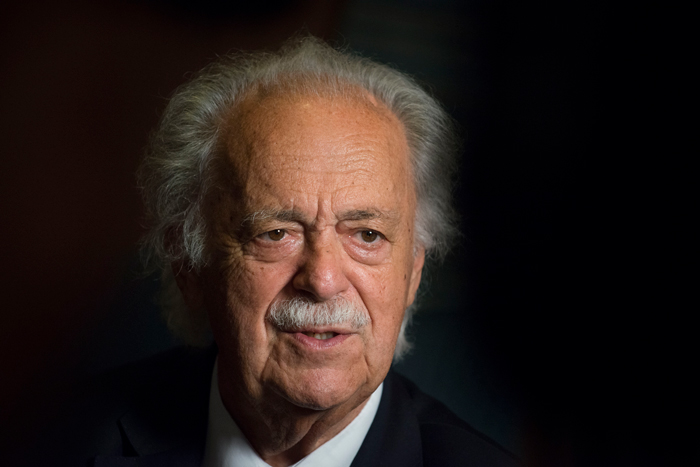
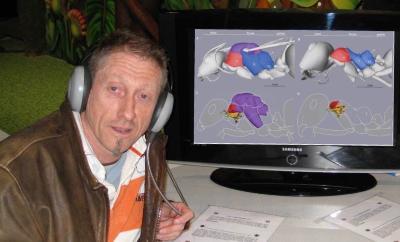
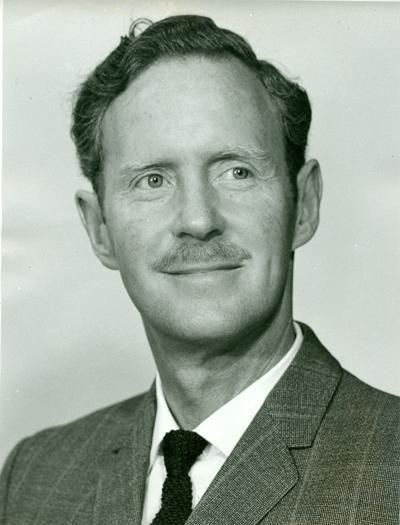
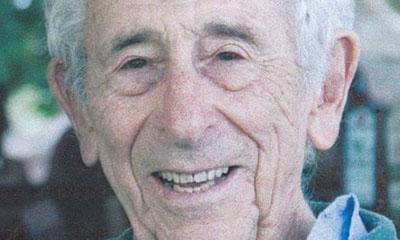

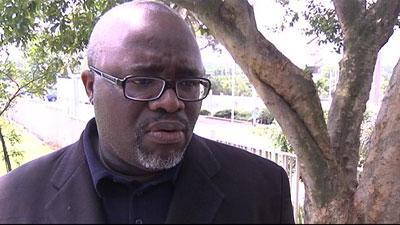
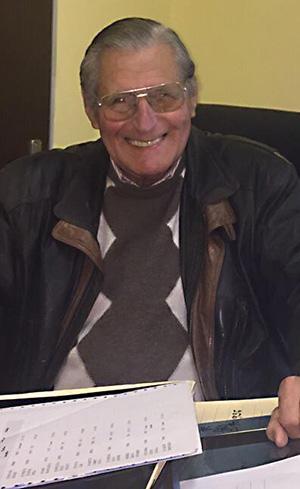
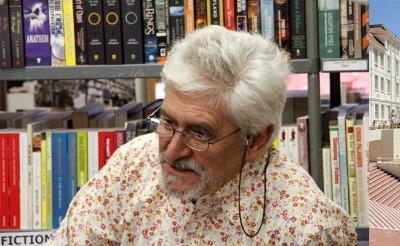
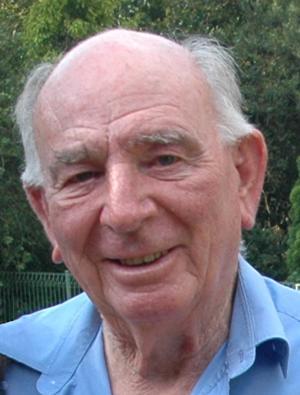
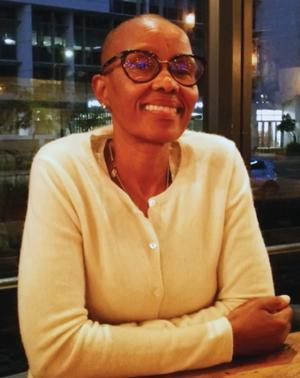
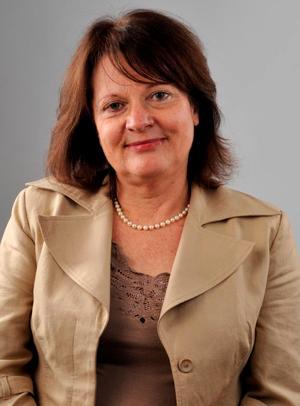

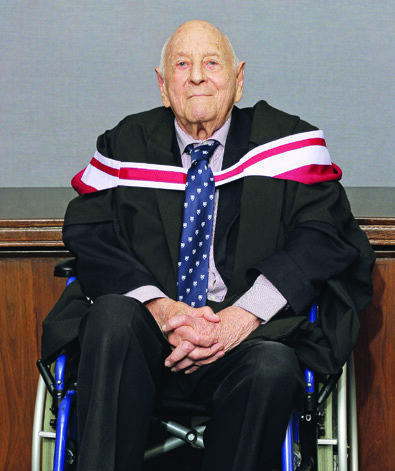
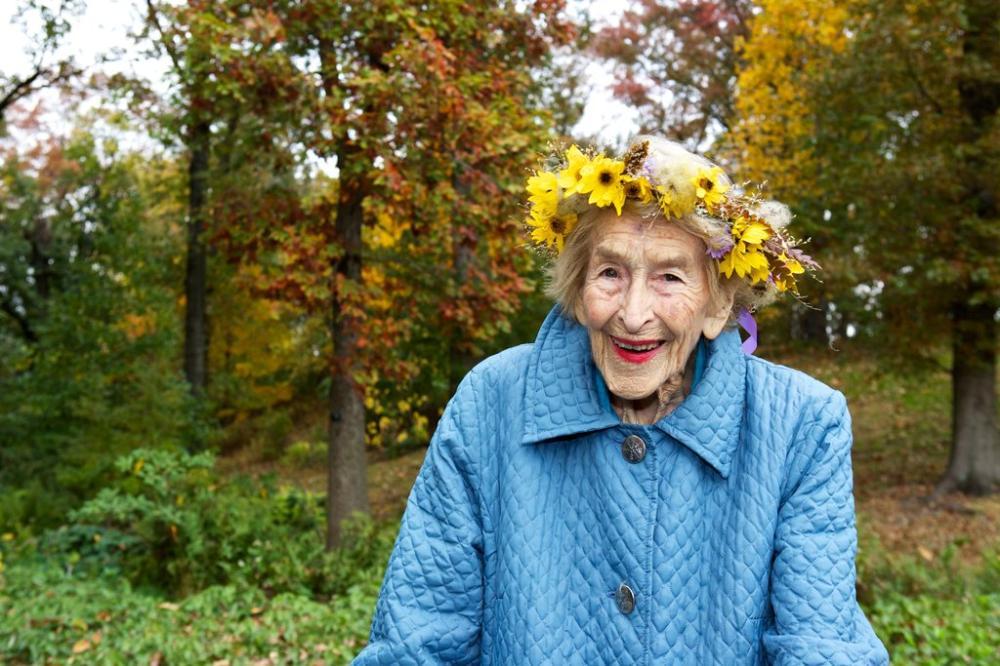 Brooklyn Botanic Garden / Image: Radhika Chalasani
Brooklyn Botanic Garden / Image: Radhika Chalasani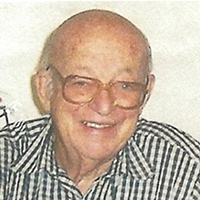
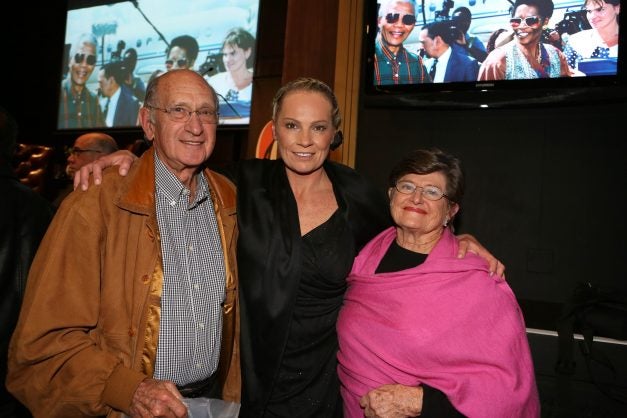
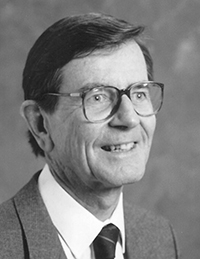


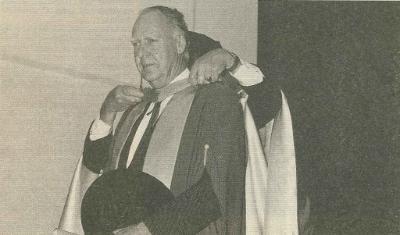
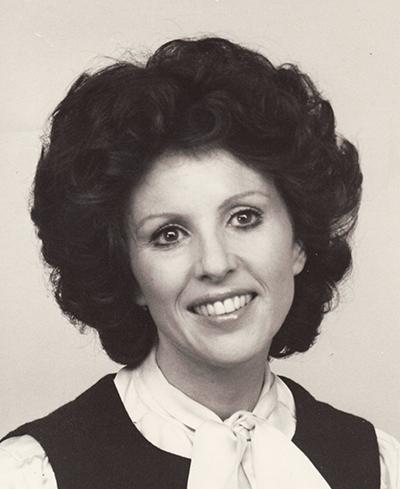
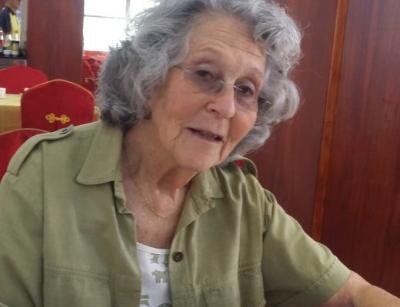
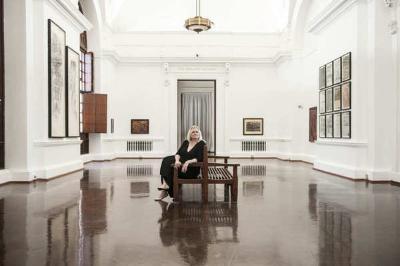
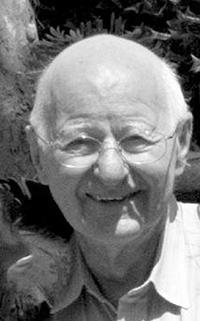
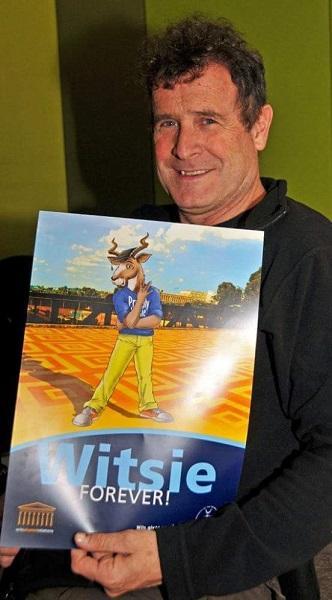
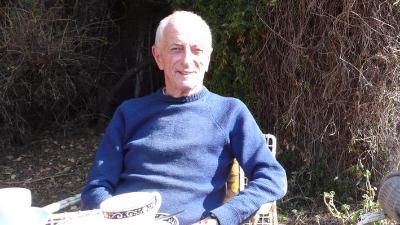
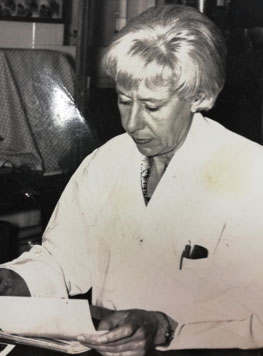
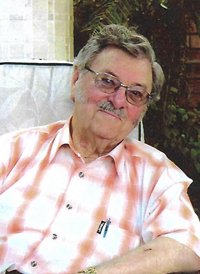
-400x425.jpg)